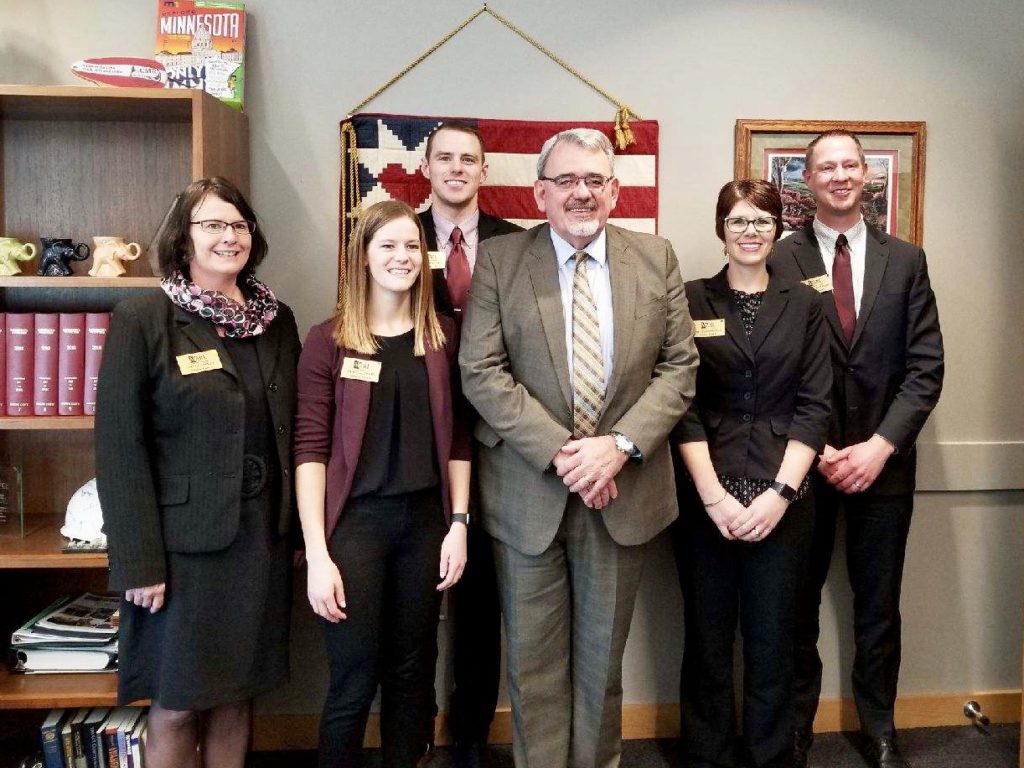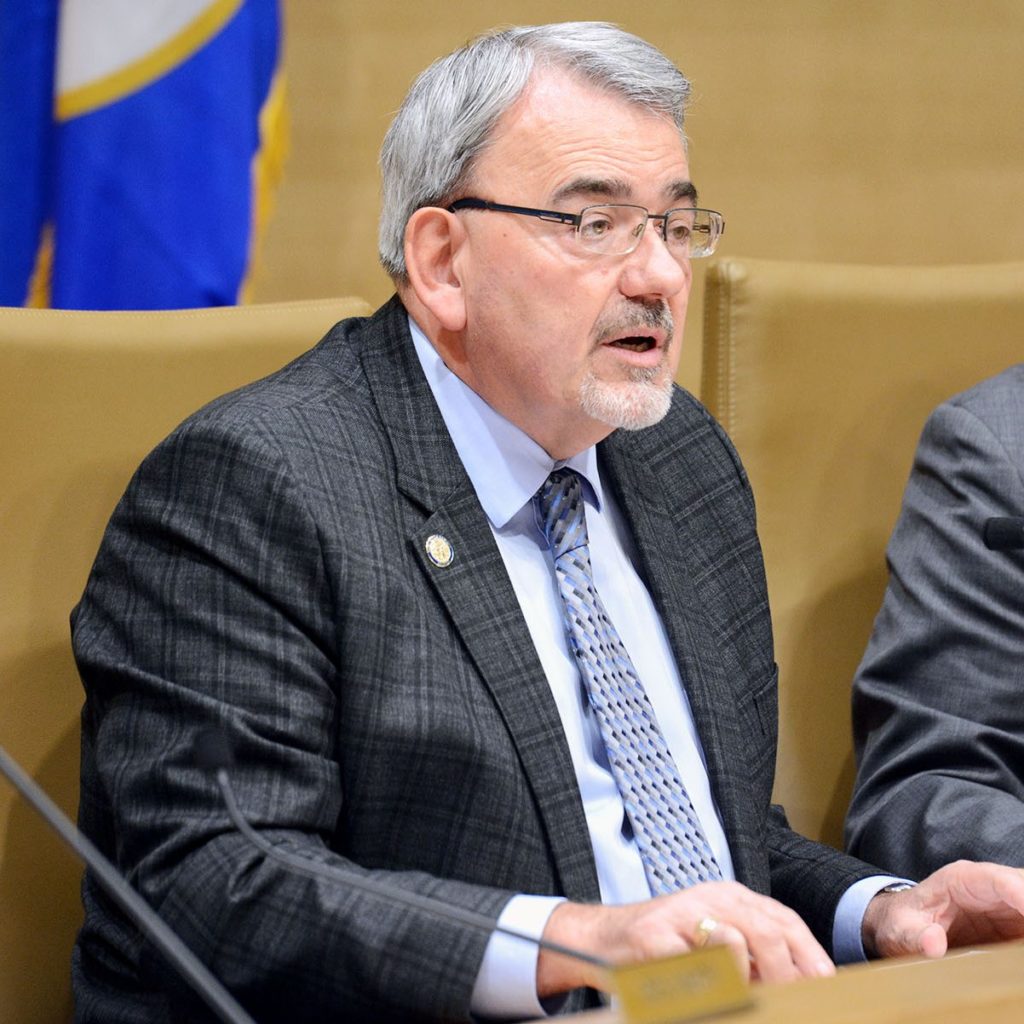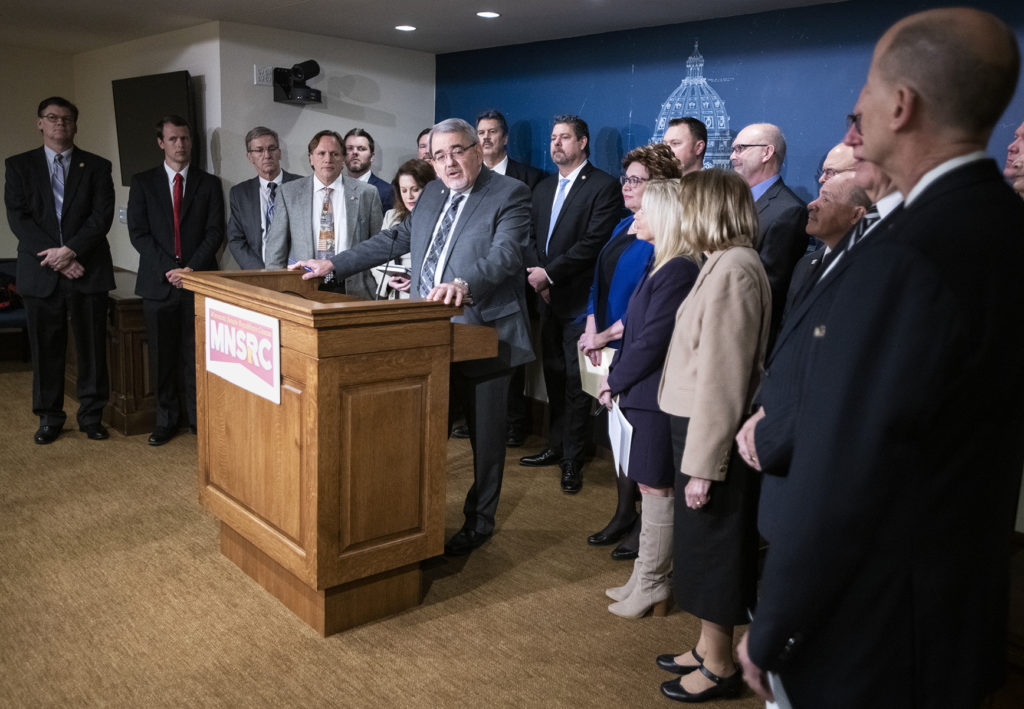The 2019 legislative session is moving quickly! With week three nearly behind us, committee work is quickly ramping up as we begin the process of assembling the 2019-2020 state budget.
As always, if you’re at the Capitol, please let me know! I’d love to meet you and hear your concerns on the many issues facing the legislature this year. Otherwise, please feel free to contact my office any time. I’m happy to help!

truShrimp update
As you know, truShrimp announced its first shrimp harbor will be built just across the border in Madison, SD, instead of Luverne. The company’s decision was largely due to an obscure rule from the Minnesota Pollution Control Agency (MPCA) known as ‘specific conductance.’ This bureaucratic snafu illustrates the problem with overregulation in Minnesota – and as a result, our state is losing out on $300 million in investment and hundreds of good-paying jobs.
I explained the issue in-depth, and added my own thoughts, in a video posted to my Facebook page. It is unacceptable that Minnesota continues to lose out on economic development due to the failure of the state to update outdated tests and rules – and that needs to change. You can watch the video below or on my Facebook page.
State budget
Perhaps the most pressing issue this session will be the assembly of Minnesota’s entire state budget for the next two years. In November, state officials projected a 2019-2020 budget surplus of $1.544 billion – the largest budget surplus in state history. Initial committee work to prepare the state budget has begun in earnest and will continue to pick up as the session progresses.
While a budget surplus is certainly good news, it more importantly means the government has collected too much – and it means we can fund the priorities of Minnesotans without raising taxes or fees. It is also important to note that, if we restore some or all of the items that former Governor Dayton vetoed, including tax conformity and reform, as well as other items, the surplus is much smaller.
This session, we will work on passing a responsible state budget that includes both sustainable spending and robust investments in areas like education, roads and bridges, and tax relief.

Childcare

Minnesota parents are struggling to find, and afford, childcare. There is little doubt Minnesota is facing a childcare crisis – particularly in Greater Minnesota, where families are struggling to find openings or struggling to pay for care and in-home family childcare providers are leaving the industry due to the burden of overregulation. This session, I expect the legislature to act swiftly to address this problem. At a time when the labor force is tight, action is critical to prevent people from having to choose between working or being stay-at-home parents.
New legislation will address the regulatory overreach causing these problems and encourage new child care providers to start up. The legislation includes regulatory changes, additional transparency from the state human services department, and create tools for providers to be better informed on how to comply with the law and create a safe environment for kids.
One of the governor’s priorities is universal pre-K education. However, I believe if the state of Minnesota comes forward with universal pre-K for 4-year-olds, it will destroy the rest of what’s left of our day care system. Instead of focusing on institutional pre-school for our youngest Minnesotans, I believe we would be best served by preserving childcare options that allows our toddlers to grow and develop based on the various options available for parents, including a strengthened in-home daycare system.
Mental health

Last year, the legislature passed several initiatives aimed at providing better mental health treatment for Minnesotans in rural areas. Unfortunately, despite widespread agreement from the legislature, those measures were vetoed at the end of the session.
Farmers have seen a fifth-straight year of low commodity prices and are facing additional stress from trade and market uncertainty, poor weather conditions, and the partial federal government shutdown. There is a real need for expanded mental health services available for our friends and neighbors who need it.
This session, I am hopeful the bipartisan spirit of action remains. We will consider many of the same proposals to bring effective and available mental health treatment options to underserved communities. This includes funding for the state farm management program to bring on more mental health counselors and offer various other services in connection with the state college system.
‘Patients First’
The Senate Republican majority announced a series of innovative ideas designed to reduce health care costs and cut through the red tape to give consumers better choices and more say in their own care. The proposals would also bring consumers reasonable alternatives to expensive health choices and eliminate anti-competitive practices that have led to higher health care and prescription drug costs for consumers.
- Coverage for pre-existing conditions: Eliminates any doubt that Minnesotans with pre-existing conditions are protected.
- ‘Right to Shop’: Gives patients the right to shop around for the best value for their health care dollar, even if the doctor or clinic is out-of-network.
- Pharmacy Benefits Manager (PBM) reform: Provides transparency and accountability for PBMs, which are middlemen many consumers don’t even realize exist between them, their doctor, and their pharmacy. The proposed reforms include the licensure of PBMs, disclosure of conflicts of interest, and a requirement to expand pharmacy networks so patients have access to local pharmacies no matter where they live in the state.
The proposals will receive committee consideration over the course of the session.
Social media
You’re invited to follow me on social media! Be sure to follow me on my Facebook and Twitter pages for the latest news from the Capitol and District 22. You’ll find legislative updates, constituent photos, events, video updates, and more.
